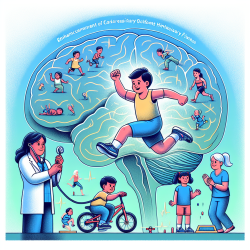As practitioners dedicated to improving outcomes for children with Autism Spectrum Disorder (ASD), understanding the complex dynamics between problem behaviours and caregiver burden is essential. The recent study titled Problem behaviours and caregiver burden among children with Autism Spectrum Disorder in Kuching, Sarawak provides valuable insights that can enhance our practice.
This cross-sectional study, conducted in Kuching, Sarawak, involved 230 caregivers of children with ASD. The caregivers completed the Aberrant Behaviour Checklist-2 (ABC-2) and the Zarit Burden Interview (ZBI) to assess problem behaviours and caregiver burden, respectively. The findings revealed significant correlations between specific problem behaviours and caregiver burden, underscoring the importance of targeted interventions.
Key Findings
- 40% of children exhibited at least one domain of problem behaviour, with irritability, social withdrawal, stereotypic behaviour, and hyperactivity/non-compliance being prominent.
- 53.9% of caregivers experienced some level of burden, with hyperactivity/non-compliance being a significant predictor of caregiver burden.
- Caregiver burden was higher among those caring for children receiving medications, registered with the Social Welfare Department, or having siblings with ASD.
Implications for Practice
The study's outcomes highlight the need for comprehensive and individualized interventions for both children with ASD and their caregivers. Here are some actionable steps for practitioners:
- Early Intervention: Implement early intervention programs focusing on reducing problem behaviours, particularly hyperactivity and non-compliance, to alleviate caregiver burden.
- Support Services: Advocate for and facilitate access to support services provided by social welfare departments to reduce the financial and emotional strain on caregivers.
- Family-Centered Care: Develop family-centered care plans that include siblings and other family members to address the broader impact of ASD within the family unit.
- Medication Management: Monitor and manage the use of medications carefully, considering their potential impact on caregiver burden.
Encouraging Further Research
While this study provides valuable insights, it also opens avenues for further research. Practitioners are encouraged to explore:
- The long-term effects of different intervention strategies on problem behaviours and caregiver burden.
- The role of cultural and socioeconomic factors in shaping caregiver experiences and outcomes.
- The effectiveness of support systems and policies in different regions and communities.
By integrating these findings into our practice and pursuing further research, we can better support children with ASD and their families, ultimately improving their quality of life.
To read the original research paper, please follow this link: Problem behaviours and caregiver burden among children with Autism Spectrum Disorder in Kuching, Sarawak.










